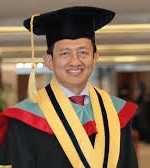Publication Ethics
TPRBF (TPRBF) is dedicated to following best practices on ethical matters, errors and retractions. The prevention of publication malpractice is one of the important responsibilities of the editorial board. Any kind of unethical behaviour is not acceptable, and the Editorial Board of this journal does not tolerate plagiarism in any form. Authors submitting articles to the TPRBF affirm that manuscript contents are original. The following duties outlined for the editors, reviewers, authors and publisher are based on the Committee on Publication Ethics (COPE) codes of conduct.
DUTIES OF EDITORS
Editors are accountable and responsible for deciding which of the articles submitted to the journal should be published.
Editor should:
- discuss with other editors or reviewers in making decision;
- evaluate manuscripts for their intellectual content without regard to race, gender, sexual orientation, religious belief, ethnic origin, citizenship, or political philosophy of the authors;
- not disclose any information about a submitted manuscript to anyone other than the corresponding author, reviewers, potential reviewers, other editorial advisers, and the publisher, as appropriate;
- ensure a fair and appropriate peer review process;
- unpublished materials disclosed in a submitted manuscript must not be used by anyone who has a view of the manuscript in his or her own research without the express written consent of the author;
- guard the integrity of the published record by issuing corrections and retractions when needed and pursuing suspected or alleged research and publication misconduct.
DUTIES OF REVIEWERS
Reviewers should be kept confidential and be treated as privileged information regarding manuscripts submitted by authors.
Reviewers should:
- be conducted objectively. There shall be no personal criticism of the author. Reviewers should express their views clearly with supporting arguments;
- identify relevant published work that has not been cited by the authors. Any statement that had been previously reported elsewhere should be accompanied by the relevant citation;
- request to the Editors attention any substantial similarity or overlap between the manuscript under consideration and any other published paper of which they have personal knowledge;
- not review manuscripts in which they have conflicts of interest resulting from competitive, collaborative, or other relationships or connections with any of the authors, companies, or institutions connected to the papers;
- In case, any reviewer feels that it is not possible for him/her to complete review of manuscript within stipulated time then the same must be communicated to the editors, so that the same could be sent to any other reviewer.
DUTIES OF AUTHORS
Authors should submit papers only on work that has been conducted in an ethical and responsible manner and that complies with all relevant legislation.
Authors should:
- present their results clearly, honestly, and without fabrication, falsification or inappropriate data manipulation;
- endeavour to describe their methods clearly and unambiguously so that their findings can be confirmed by others;
- adhere to publication requirements that submitted work is original, is not plagiarized, and has not been published elsewhere;
- certify that the manuscript is not currently being considered for publication elsewhere;
- ensure that they have written entirely original works, and if the authors have used the work and/or words of others this must be appropriately cited;
- take collective responsibility for submitted and published work;
- ensure the paper contain sufficient detail and references to permit others to replicate the work. Duplicitous or expressively inaccurate statements constitute unethical behaviour and are unacceptable.
- ensure proper acknowledgment of the work of others must always be given. Authors should cite publications that have been influential in determining the nature of the reported work;
- ensure that the authorship accurately reflects individuals’ contributions to the work and its reporting; and where there are others who have participated in certain substantive aspects of the research project, they should be acknowledged;
- disclose relevant funding sources and any existing or potential conflicts of interest. All sources of financial support for the project should be disclosed;
- discovers a significant error or inaccuracy in his/her own published work, it is the author’s obligation to promptly notify the journal editors and the editor to retract or correct the paper.



























